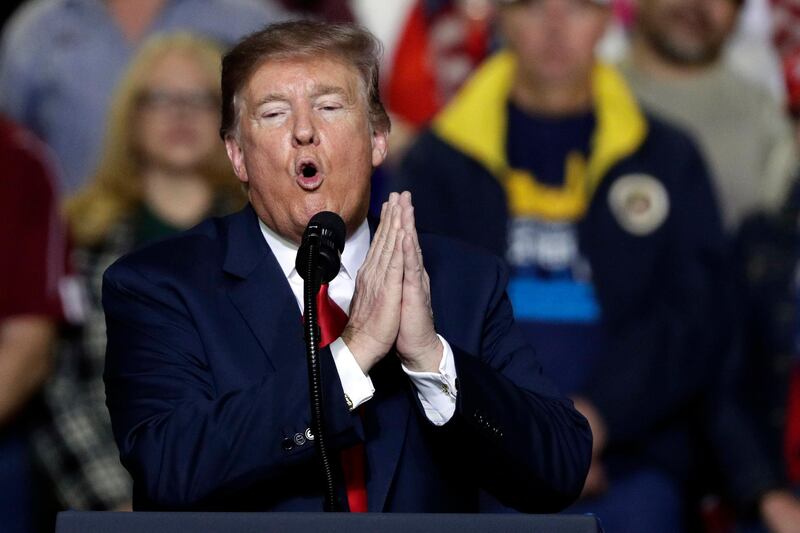A frosty reception from the region and White House scheduling issues have delayed the planned summit in Washington of members of the proposed Middle East Strategic Alliance (MESA), and although a working-group meeting will finally take place this week the project is still a long way off.
MESA is, in theory, a security and economic alliance that the administration of US President Donald Trump is hoping to launch in the Middle East. It would include the US, Saudi Arabia, Bahrain, UAE, Oman, Kuwait, Qatar, Egypt and Jordan, and would be focused on countering Iran, and other mutual threats.
Diplomatic sources told The National that a working group meeting on the assistant secretary level will be held this Wednesday for representatives of the three MESA components – GCC, Egypt and Jordan – in Washington to continue discussing a framework for the alliance. The working group meeting was initially scheduled for early February but was delayed until after the Warsaw ministerial summit last week.
Despite a political meeting in New York last September and an economic one in Oman last month, the Trump administration is still facing hurdles to host a launch summit for MESA, forcing it to be pushed back three times.
While the concept of MESA is not new – in 1953 late President Dwight Eisenhower attempted to build an Arab-Nato to counteract communism in the region. Since then, several US leaders have tried to unsuccessfully re-brand and revitalise it.
A report by the Carnegie Endowment for International Peace this month highlighted four main obstacles that could hinder the formation of MESA.
Yasmine Farouk, the report’s author, highlights the plan’s lack of a convincing security framework beyond confronting Iran, the perception that the alliance is designed to serve US and Saudi interests, that the alliance ignores domestic political drivers of instability – such as internal reforms and economic growth – and that it suffers from expectation and confidence gaps given the Gulf split still ongoing.
Ms Farouk argues that “MESA has been conceived to meet US needs – to target Iran and to reduce US regional presence without allowing China or Russia to gain influence – while disregarding the priorities, and constraints of prospective Arab member states.”
The report – The Middle East Strategic Alliance Has a Long Way to Go – says the US is seeking to use MESA the align the defence systems across member states, probably through "regional capabilities centres."
These would focus on "the maritime, cyber, air, and missile domains" as well as border security, asymmetric warfare, and command and control."
However, and unlike Nato, joint troops and an agreement similar to Article 5 of mutual defence are not being discussed with MESA, she writes.
For the Trump administration, creating a regional defence structure such as MESA fits with its goal of scaling back US presence in the region. But this is in part why it's problematic for regional countries. A senior Gulf official visiting DC recently told reporters that within the concept of MESA, the regional countries are seeking "reassurance of American presence in region" and not withdrawal.
The US, says Ms Farouk, is also trying "to push back against growing Chinese and Russian influence in the region, including their support to Iran [and] boost trade and foreign direct investment among its members." But as the Qatar crisis enters its second year and Saudi Crown Prince Mohammed bin Salman prepares to visit China this month, these goals appear less plausible.
While the US continues to hope for a summit before April, a senior Gulf official calls Mesa "a very visionary proposal and we will see if it happens."
But until the underlying issues are solved, it is unlikely MESA can become more than just an idea.






